I think it's fair to point out, too, that I'm not a corporate guy. I run a business on the corner of Valley (Street) and Raymond Road. Photo by Virginia Schreiber.
Lee on the Defensive Over Judgments
The JFP broke the story April 24 about mayoral candidate Jonathan Lee's business problems.
FACTCHECK: Is Jonathan Lee a 'Rankin County Republican'?
The JFP looks at the facts behind the rumor.
JACKSON — It didn't take long for Jonathan Lee to regret his decision to leave the metro area. A native of Jackson, Lee enrolled at the University of North Carolina after graduating from Northwest Rankin High School in 1996. Two weeks later, he was back in Mississippi.
Lee, who plans to run for mayor of Jackson in next year's election, thought he wanted a faster pace than his home city had to offer. Homesickness quickly took hold, though, and Lee called his father with news that he wanted to return to his home state.
"Instead of saying, 'It's only been two weeks. Stick it out,' my dad said, 'What? No out-of-state (tuition)? Come on home,'" Lee said.
So Lee returned to Mississippi and enrolled at Mississippi State University, where he earned a bachelor's degree in marketing in 2000 and master's degree in business administration in 2002. After graduation, he worked for then-university President Malcolm Portera and began to think he wanted to be a university president one day.
When Portera left Mississippi State in 2002 to become Chancellor at the University of Alabama, Lee's father, John H., asked his son to come back to Jackson and work for the family business, Mississippi Products, Inc. Lee decided to defer his planned doctoral studies for a year and return to Jackson. Shortly after that, his father received a terminal cancer diagnosis. He died eight months later.
At 34 years old, Lee says he is ready for a new challenge: leading the capital city. Next year, he plans to go up against established politicians and other relative newcomers in a mayoral race that looks wide open.
Why did you decide to run for mayor?
I came back (to Jackson), and I have a large family all over the place. I really got excited with what was going on in Jackson. I really rediscovered the city; I shouldn't even say I rediscovered. I realized what an awesome place we live in. I became enamored with the amount of goodwill here. There are so many people doing great things, pursuing their individual passions for the greater good.
When I came back, of course, my dad was all of a sudden out of the picture. I had an opportunity to sit in on some of his board appointments and things he had done that I, honestly at my age, never would have had that opportunity to do. I came back and immediately filled his seat on the Chamber of Commerce. I am still on that board. I just had an opportunity to get to know some of the inner workings of what's going on in the city.
Then, on the other side of the equation, we have a business that employs people who are blue collar, doing a whole lot of interchange with them. The thing that probably concerned me the most was there was a lot of missed opportunity. There seems to be a disconnect between the face of our community and what the issues are. Despite all this goodwill, (there) did not seem to be many opportunities, led by city government, to coalesce.
The Mayor's Race Is on in Jackson!
Watch for JFP Interviews with other Jackson mayoral candidates including Frank Bluntson, Chokwe Lumumba, Regina Quinn and incumbent Harvey Johnson Jr.
If your individual passion is children, and you want to work to do after-school programs or some type of recreational project, people might ask, "How does the city get involved in that?" Quite frankly, I think one of our opportunities in the city is we've got to figure out a way to get the entire community working together to help solve big problems.
I just felt like the opportunities weren't there. We've got a huge community of folks who are working. At some point, we have to figure out how we're going to implement and involve them in the process of the problems.
Can you be specific?
The example I usually give is: At some point, the city decided that it had no business picking up the trash. There are other things that we can be doing with our time. We can outsource those types of projects. Someone else can do it better and cheaper.
If you look at it from a social-services point of view, what if city government spent more time saying; "Alright, you run a homeless program, Salvation Army. You're doing a great job with what you do. Stewpot, you're doing a great job with what you do. How can the city add leadership to your programs, instead of trying to run a mediocre program ourselves? How can we measure those outcomes and leverage those outcomes for grant moneys and other opportunities?"
I think in a city like this, in an urban environment, that's going to be the way we get things done: nontraditional, out-of-the-box ways to really involve the entire community, working together to solve a problem.
What qualifies you to be mayor?
That's a great question. I think just now, we need a certain set of actions for mayor. We are in a particular point in time where people have lost the ability to dream. I think we need someone who can coalesce a vision from the community.
I have had experiences—have been blessed with experiences from my community affiliation. I do a lot of work in town. I've done a lot of work with Operation Shoestring. It seems like everybody, no matter where you're working at, is looking for a connector, someone that can bring folks from every segment of the community together, whether you're rich or poor, black or white. I think that's what we need right now, and really, that's my strong suit. I have no respect for person; we are all God's children. I think we all have a place. He's created answers to every equation.
I do have a background for business. That's my core competence. That's what I've been doing the past 10 years. I think there are opportunities for us to really, really make this city more efficient, less stagnant. It's time, I think, to break out of the status quo. We've got to start reaching for greatness, dreaming the big dreams.
If you are elected, what specifically will set you apart from the current administration?
I think one of the major issues that's going to set me apart is (that) I'm personally of the belief that we're going to have to break away from a siloed education system. What I mean by siloed is: We're going to have to find ways to use our political power to drive personal capital in the education system.
I'll give you an example. One of the things that we've been working on since November is we're getting people from all across the community around the table to talk about how we create free after-school care for our students. That's one of those ideas that really reverberates with the community. I'm talking about an opportunity to get art, music and sports back to schools in a major, major way. At the same time, you get kids something to do after school.
If we're looking at it pragmatically, you could, essentially, be driving down the crime rate, (and) at the same time helping bust those test scores. So when we're trying to attract business from out of state, or even from in the state, Jackson all of sudden becomes a better place to do business, because we have a great school system.
You mentioned reducing crime. What, specifically, could you do as mayor to help reduce crime in Jackson?
Specifically, as mayor, the opportunity for us with crime is to make sure the community understands that this is a problem that's not going to go away overnight. It's going to require the entire community to band together to stamp it out.
There are a lot of common-sense initiatives that we can do a better job of implementing here in the city. Also, it's important to mention that we've really got to work on making sure that we change the culture of both the fire and police departments. It's a hard thing when you're putting your life on the line every day, whether it's fighting a fire, or you're out there in a patrol car every day, and you're concerned about whether or not you're going to get paid for your overtime. We've got to create some real changes. I think you've got to be able to see your way to the top. If you start out as a rookie cop, you want to see how you progress through the ranks. They really have to be empowered to know that their job matters and that the community supports them.
I think that goes two ways. We'd love to make sure our police chief feels empowered to—when there's an issue or when there's not an issue—they can go to the media or whoever and say; "Look, we're here. We're working together with you to make sure this is a place you want to be."
Whether it is perception or reality, the idea is we have folks who make decisions—whether they want to live here in Jackson—based on whether or not they feel safe. Our job is to make sure that not only do they feel safe, but (that) they feel empowered to make sure that Jackson is a place where you can feel free to roam and live your life without having anyone infringe on your personal safety.
You mentioned reducing crime. What, specifically, could you do as mayor to help reduce crime in Jackson?
Specifically, as mayor, the opportunity for us with crime is to make sure the community understands that this is a problem that's not going to go away overnight. It's going to require the entire community to band together to stamp it out.
There are a lot of common-sense initiatives that we can do a better job of implementing here in the city. Also, it's important to mention that we've really got to work on making sure that we change the culture of both the fire and police departments. It's a hard thing when you're putting your life on the line every day, whether it's fighting a fire, or you're out there in a patrol car every day, and you're concerned about whether or not you're going to get paid for your overtime. We've got to create some real changes. I think you've got to be able to see your way to the top. If you start out as a rookie cop, you want to see how you progress through the ranks. They really have to be empowered to know that their job matters and that the community supports them.
I think that goes two ways. We'd love to make sure our police chief feels empowered to—when there's an issue or when there's not an issue—they can go to the media or whoever and say; "Look, we're here. We're working together with you to make sure this is a place you want to be."
Whether it is perception or reality, the idea is we have folks who make decisions—whether they want to live here in Jackson—based on whether or not they feel safe. Our job is to make sure that not only do they feel safe, but (that) they feel empowered to make sure that Jackson is a place where you can feel free to roam and live your life without having anyone infringe on your personal safety.
You said there are some common-sense initiatives we can put in here in the city. What are some of those initiatives?
There are two approaches to that. Going to things we used to do, you look at it administratively. When dealing with the police department (and officers) taking cars home, I met with several folks that are experts, as it relates to law enforcement. There is a quantifiable bonus to have officers be able to take their cars home. They can park it in the driveway. It deters crime. Not only that, the equipment lasts longer. For whatever reason, those police cars, they take better care of them.
On the other side, as it relates to the community, I think one of the things that the city has done in the past is make sure that through our precinct meetings, that folks are aware of ways that they can deter crime. Things like making sure you don't leave anything on your car seats and all that kind of good stuff.
I think it makes sense for the city to go back to the days when we had an Officer Friendly. That was their job, to get in the community and to talk excessively about just common-sense things: locking your car, not leaving your keys in your car, making sure your shrubs are cut back. One of the things that's done across the country is (that) beat cops actually may drive past your house and notice that your shrubs are grown up. They may make a little note on a note pad: "This is your friendly Officer Friendly. I just drove by your house, and I noticed that you've got some visibility issues. Nothing is wrong, this isn't a ticket, but I wanted to make you aware that I'm driving by and I see some potential issues."
Not that there is anything going on wrong in the city; it's just something I see. I think that helps. Those kinds of help really defeat the idea that crime is out of control. I think what we miss here in our community is there are some folks that feel like crime is going unchecked. How do you help a person with how they feel? Actions like that. You see a cop who stops and says, "Look, I don't have to stop, but this something I think you should work on." You've got to increase that emotional capacity with ways that folks feel like the police, fire department (or) whoever is actively out there working on combating crime.
It's nothing more than plain old customer service. At the same time, we've got to get those boys and girls on the police force and fire department to choose to do that.
If you get elected, day one, what is your first priority?
We've got a whole lot going on here in the city. Of course, we want to start doing some assessment of where we are and where we can go.
I guess, overall, the thing that I want to do first is really dig into the community and figure out what is on the hearts and minds of the people. I really believe that if we're going to push forward, the idea is not to sell anybody on my plan or my vision. The idea is to implement the vision of the people and get them to join in and be a part of the anything we can do. Then, when we accomplish that goal, the people can turn around and say, "Look, we did this, and we did it together."
I think one of the downfalls of where we are today is there is a feeling of everything is hands-off. Whether it's perception or not, from the folks that we've talked to, and we've been talking to folks for months and months all over the city, we've got to empower people. We've got to empower people to get involved in their communities.
In the overall community, we've got to teach people how to dream. It's funny when you sit down with a group of folks. It's hard to pull out, "What do you want to see?" When you put so much focus on what's wrong. "OK, this is wrong, but what do you want to see? What does a sustainable community look like to you?"
First day, first month, we are going to do a whole lot of that. It's going to emanate through economic development. It's going to emanate through public safety. It's going to emanate through how we have a positive effect on schools. In everything we do, we've got to get a community involved.
You're younger than most of the other candidates. How could your age affect your ability to govern?
I don't think age affects ability to govern whatsoever.
My hope is that my age will inspire other folks my age to be even more involved the process—in the process of governing and the process of being a committed, effective member of the community.
We do have an older set of folks, and no one, certainly, wants to eradicate old people from the table. Of course, they come with wisdom, but I think there is definitely some room at the table for younger people.
When you look at the city of Jackson, we're losing 1,300 people every year. So, of course, I'm concerned about those folks in my age bracket that are starting families (and) that are just getting married. That's our hope.
How do we turn that 1,300 net loss into 1,300 net gain? I think where we are just now is that people have got to feel emotionally invested that "I can make difference," and certainly they can. We've proved that time and time again.
Editor's note: From 2000-2010, Census figures show that Jackson averaged a loss of 1,128 residents per year, including a gain of 273 from July 2005 to July 2006.
How do you get people to feel emotionally involved?
I think it goes back to what we talked about, as it relates to crime. I think the only thing that inhibits it is kind of this imperialistic view that everything has got to be handed down from the city. I personally think that if you open up, you be transparent, and you show people. "Alright, we're working on this, but we need your input."
I'll give you an example. There is a lot of talk about the Highway 80 corridor. It's really interesting. There is a really high traffic count that goes up and down the corridor. People argue that it's the best location in the state. You've got (Interstates) 20 and 220 that intersect there.
I think one of the things that we've done a very poor job of as a city is building a case for business. So what if we created some type of economic dream team, where we invited the entire community, old and young, that live in that area and said: "Look, we've got a lot of vacant space here. What is it that you want? What is it that you need?" And we create an environment where people bring their ideas to the table?
Then it's up to the city to set the stage. We discover the data. How many people live in this area? Where are they going for particular services and particular kinds of recreation? How much disposable income do they have?
Rather than hoping and waiting that somebody comes along and discovers Jackson and the intersection of I-20 and 220, we go tap people on the shoulder and say, "Look, we've got the perfect location for you. I know the city owns the building at the Metrocenter. Hey, we've got a building here. Here's the disposable income. Here's the number of cars that pass by each day. By the way, we've got a community that is pledging; we've got signatures; we've got folks working, pledging they are going to spend the money here."
How do you plan to compete with established politicians in the city such as Mayor Harvey Johnson Jr. And Councilmen Chokwe Lumumba and Frank Bluntson in this campaign?
I hope that this campaign is about the issues. We all know there are lots of issues out there. We've got some plans that we're going to be rolling out in the very near future for addressing those issues. Honestly, I think that the cream rises to the top. I think that we're definitely in the time when people are ready for something new, fresh and outside of the status quo. I think that they are going to be listening for what that is.
We've got some factors in our city that I don't know if we've actually, really addressed head-on, like education. No doubt about it: The lifeblood of this city (is) the kids that live here. Every problem that we have can be directly or indirectly traced back to whether or not we have an engaged, high-functioning public-school system.
I think talking about issues, generating ideas and inviting people into this campaign as an opportunity for them to build a vision and build a way to implement it will set us apart from every candidate running.
Your work with the Greater Jackson Chamber and some of the developers around the city has raised concerns with some people that you are the developers' candidate. How do you assure the people that you will take a discerning look at these developments and do what is right for the little man, as well as the developer?
First of all, I'm glad you asked that question. The idea that I'm the developers' candidate or the idea that I am favored by these guys is completely unfounded. I've been chairman of the Jackson Chamber of Commerce, no doubt about it, but one of the things that I did during my tenure (there) was to make sure that the Chamber of Commerce sponsor community forums like we do (at Koinonia Coffeehouse) every Friday.
I don't have any allegiance to any particular developer. I just want development that makes sense for the entire community, not just for some. One of the things that we will be talking about in great detail is making sure that our city is inclusive. I don't mean racially inclusive, which is important as well: I'm talking about economic inclusiveness. For far too long, we've been doing things to our communities in Jackson, instead of with our communities.
Honestly, serving on the board of the Chamber of Commerce had given me an opportunity to see (that) there are some things, some really grave issues that we've had. There are some real opportunities that we've had to make sure that we do development that benefits everybody.
The developers' candidate, that's sort of an interesting way of putting it. Is that the business candidate, too, or is that just the developers' candidate?
I guess it can kind of go together.
I think it's fair to point out, too, that I'm not a corporate guy. I run a business on the corner of Valley (Street) and Raymond Road. I have employees that take the bus. We have known them and are intimately involved with them for many, many years. The perspective of being a small business owner, (and) a black business owner is a lot different from a corporate guy. I think that's one of the divisive tactics, the ugly things that happen during the election cycle to really take our eye off the ball.
Yes, I've sat at the table. I've learned a lot. I've learned some things that I want to do. I've learned some things that we certainly don't need to do, or do again for that matter. I'm definitely not the business candidate. This whole campaign, we will be emphasizing the fact that this is a community where I'm from. I'm running for this office because it's personal; it's a real personal thing for me. I want a community where not only my daughter, but my cousins and my nieces and nephews are getting a great education.
(I want) a place where folks on the south side of town aren't worried about property values or even whether or not their going to be able to run down the street to the grocery store, as opposed to running all the way across town, because there isn't a grocery store in their community. I'm concerned about those things. I'm concerned about this idea of infrastructure and the fact that people don't feel that the streets are up to par, or that the water may (not) run when they turn on the faucet.
I think, at the end of the day, that we all—as citizens—have a few expectations of our city and what our city should be doing to provide those certain amenities that we pay for in the form of taxes. Right now, the city is suffering. It's going to take coming up with innovative ways to sustain the population that's here, and at the same time, attracting population within.
Right now, we're in a situation where we don't know how we're going to pay the freight. How are we going to finance infrastructure issues when we're losing 1,300 people a year? We've got, I think, 75,000 housing units in Jackson. 17,000 of them are vacant. How do we put those houses back into service in a sustainable way? How do we attract people to our community? I don't think we can stand to risk any segment of the population in answering those questions.
Because there are so many of us here, we've got to figure out a way, like I said, to expand that table to where we can have an open and honest conversation about what we expect, what we need and how do we as a community, not just one segment of the community, but an entire community, affect those kinds of changes.
What can the city do about abandoned houses and properties?
There are a couple of national models that we can use. One of the ways is incentivizing—I think the term that they used is—public-service employees with an opportunity to purchase inside the city: folks like police officers or schoolteachers.
We have an over-abundance of abandoned housing. I had a sit-down conversation with two young guys that actually rehab houses in south Jackson. There are some tools that we'll be talking about in the future that we can roll out that will enable us to get those people in those houses
.
It's interesting. A guy made a point to me the other day (about houses) in the price range from, say, $80,000 to $120,000. In their view, the only thing that stood between a guy or girl being able to live in that home is a down payment. They have a history of paying $550, $600 in rent every month, and (they're) never late, but they just don't have the basic down payment to get in the door. So what if we came up with a way to incentivize the folks who are rehabbing houses to move the value of that property up, say 10 percent. Assessed value goes up 10 percent, and in exchange for them doing that, we create a mechanism by which they can pass on a down-payment system to people and get them in those houses.
I mean, right now we've got an over-abundance of houses that are owned by the city or owned by the state that aren't doing us any good. We aren't collecting taxes on them. That's one of many ways we can get it done.
The city has a lot of big development proposals out there right now: One Lake, the District at Eastover, Old Capitol Green, Farish Street and the Medical Corridor. If elected, which developments will you make a priority? And which may not be a good idea for the city?
I think one of the things that we've got to start doing, and this goes back to being in business, is some way we're going to have to figure out a way to juggle more than one project. We'll be looking at all of those projects. From the outside looking in, all of them are different on the surface than they are in detail. You brought up Farish Street, for instance. We are counting on that. I can't say that I'm going to do anything special (with it). In fact, if all goes well, it'll be open by the time we're elected.
I do know that we've got to create a transparent process. I, for one, like many Jacksonians, want to make sure that any tax money that I have invested in a project like that is being handled responsibly.
The medical corridor is another huge opportunity, I think, for the city of Jackson. The thing that interests me is attracting outside firms in that can provide valuable jobs for us.
I would have to say that is going to be high, high, high on my list, making sure we attract industries that create jobs; and making sure that we utilize those federal programs effectively where we can train Jacksonians for those jobs.
I know that the state has, just recently, passed some legislation to make the corridor extremely easy to develop, so to speak, in terms of research firms coming in or even black manufacturing coming in. I am supremely interested in that. We've got to really think outside the box and see what kind of things we as a city can marry with those other incentives to get in and working again.
What else did you mention?
One Lake, District at Eastover (and) Old Capitol Green.
I am supremely interested in One Lake, too. I don't know what the latest is; the One Lake versus Two Lakes. I know that the Army Corps of Engineers, I think, has signed onto the One Lake plan.
Of course like everyone, I am concerned about sustainability. If there is a way to build (One Lake), make sure that the river basin is taken care of and there are no environmental issues, and it provides jobs and opportunity for retail and economic development that is inclusive, not just for one part of the community; a model like Old Capitol Green, where they are doing some really innovative things to get people working (and) get people living in that community, I'm all for it. I don't make any qualms about the idea that we've got to have the community at the table.
Email Jacob Fuller at Jacob@jacksonfreepress.com.

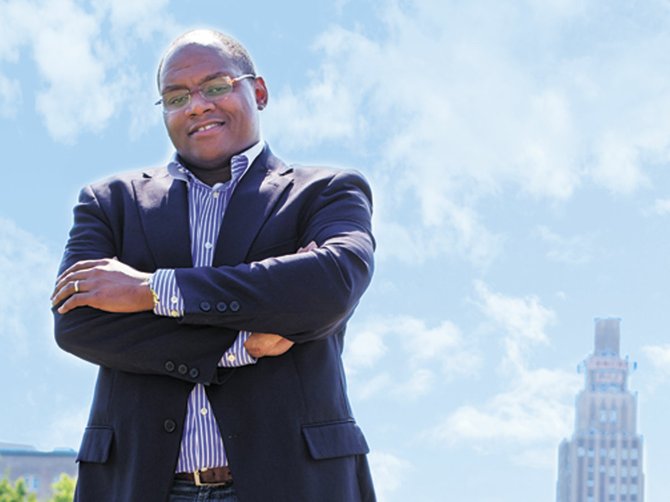
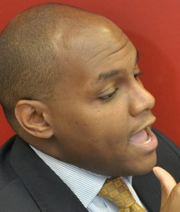
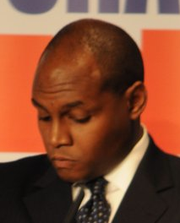
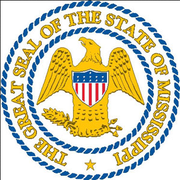

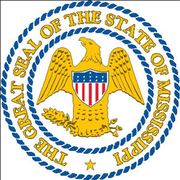
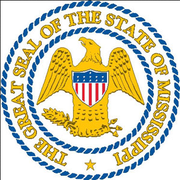
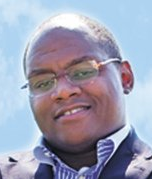
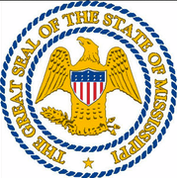
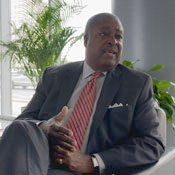

Comments